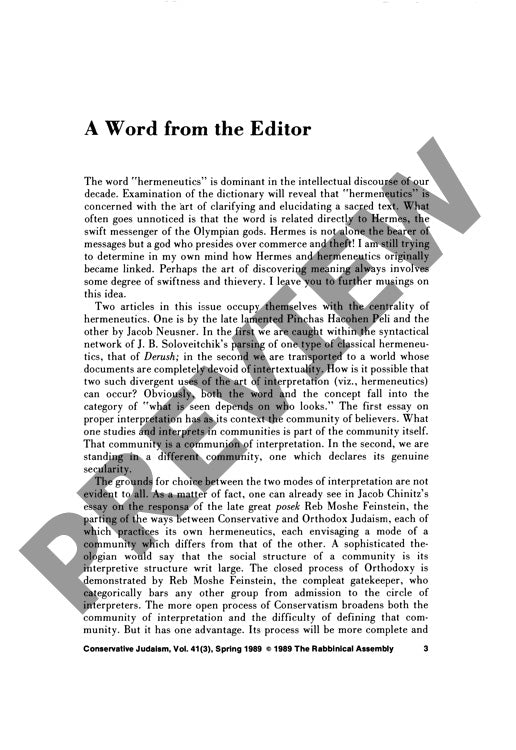A Word from the Editor
Couldn't load pickup availability
This editorial examines the multifaceted nature of hermeneutics in contemporary intellectual discourse, exploring its etymological connections to Hermes, the messenger god associated with both communication and commerce. The author analyzes three scholarly contributions that demonstrate divergent approaches to hermeneutical practice within Jewish communities. The methodology involves comparative analysis of interpretive frameworks, examining how different religious communities construct meaning through textual interpretation. The first article by Pinchas Hacohen Peli investigates J.B. Soloveitchik's approach to classical Derush hermeneutics within a community of believers, while Jacob Neusner's contribution explores secular interpretive methods devoid of intertextuality. Jacob Chinitz's examination of Reb Moshe Feinstein's responsa illustrates the hermeneutical divide between Conservative and Orthodox Judaism. The analysis reveals that interpretive methodologies are intrinsically linked to community social structures, with Orthodox approaches maintaining exclusive interpretive authority while Conservative Judaism embraces broader participatory hermeneutics. The study concludes that hermeneutical practices function as extensions of communal identity, with each tradition's interpretive framework reflecting its underlying theological and social commitments. The relationship between sacredness and meaning in ritual contexts remains an unresolved question requiring further scholarly investigation.

More Information
-
Physical Description
-
Publication Information
Published 1989
ISBN
-
Publication Credits
David Silverman

